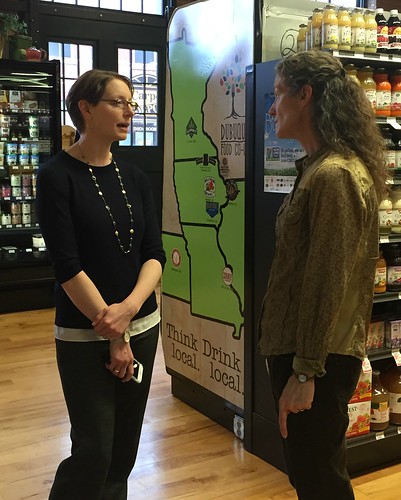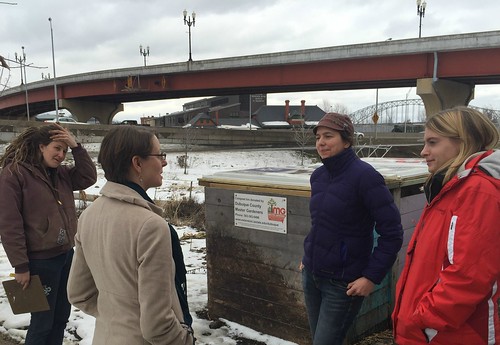
So called because it was left untouched by retreating glaciers that flattened much of the Midwest, the Driftless Area of northeast Iowa, southwest Wisconsin, and bits of Minnesota and Illinois is home to more than just beautiful rolling hills. It’s also the site of inspiring efforts to develop a strong regional food economy. I had the honor of visiting the region in my first trip as Acting Administrator of USDA’s Agricultural Marketing Service (AMS).
With Secretary Vilsack’s leadership, USDA has put local and regional food front and center over the last seven years. We realize that consumer demand for local food can create economic opportunities, help develop systems that bring healthy food to underserved communities, and better connect consumers with agriculture. Building these systems often brings together unlikely partners – farmers, economic development experts, local government, school officials and supply-chain businesses – in the pursuit of shared goals.
This “all hands on deck” approach was clear to me during my visit to Dubuque, Iowa. In a conference room at the local economic development agency, across a brick courtyard from the Dubuque Food Coop, I sat with colleague Bill Menner, the Iowa State Director for USDA Rural Development. We talked with local farmers and ranchers about access to credit and crop insurance, discussed processing and food aggregation options with small business owners, brainstormed with education leaders about the role that university and community college curricula and research can play in supporting these efforts, and heard from school foodservice personnel about their work to source more locally-grown food and fit ag education into the school day. Despite the many different perspectives, it was clear that everyone shared common goals.
Next we visited the Dubuque Rescue Mission (DRM), a shelter for men in need that also serves meals to men, women, and children throughout the day. In a greenhouse around the corner from the Mission, staff provide job training, grow healthy food with the men to supplement their daily meal program, and host community events. In the cold Iowa winter, greens, herbs, tomatoes, and even mushrooms were growing inside the greenhouse during our visit.
Later that day, we took a quick ride over the Mississippi River into Wisconsin to visit Sinsinawa Mound, a 450-acre parcel of land run by the gracious Sinsinawa Dominican Sisters. At a community dinner that included USDA Extension experts, farmers, and local government officials from several states, we discussed the Sisters’ plans to turn some of the land into a beginning farmer training program, with the goal of creating more farmers who can grow food for the local community.
This visit showed me how important it is for different sectors to come together to successfully build regional food economies. I was excited to learn that in Iowa, Cooperative Extension is playing a key role in these efforts; there are now several Extension experts whose job is to convene and coordinate local foods stakeholders in their region.
At USDA, we realize that we, too, can bring a range of stakeholders together to make progress. AMS has many tools to support local food systems, ranging from research and technical assistance to grant programs such as our Farmers Market Promotion Program and Local Food Promotion Program. Combined with the work of our sister agencies, we have an incredible amount to offer communities like those in the Driftless Area. I encourage you to visit the "Know Your Farmer, Know Your Food" initiative website to learn more. Whether it’s farm-level credit or conservation programs, support for rural and urban food businesses, efforts targeted to families in need, or research and education, USDA has the relevant technical and financial resources for the local and regional foods community.




